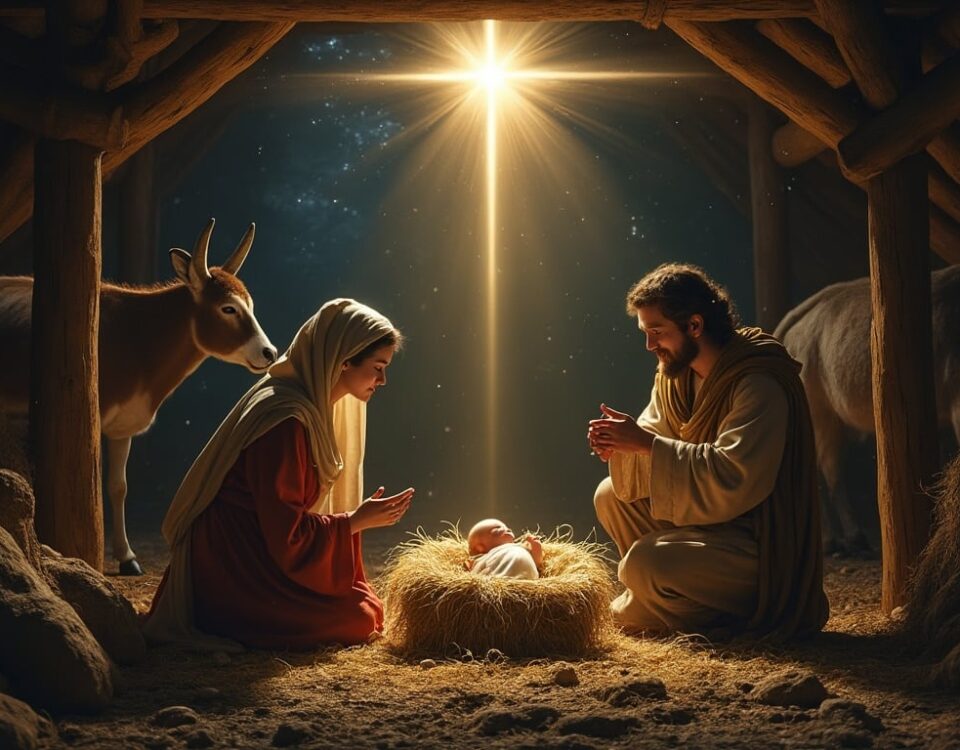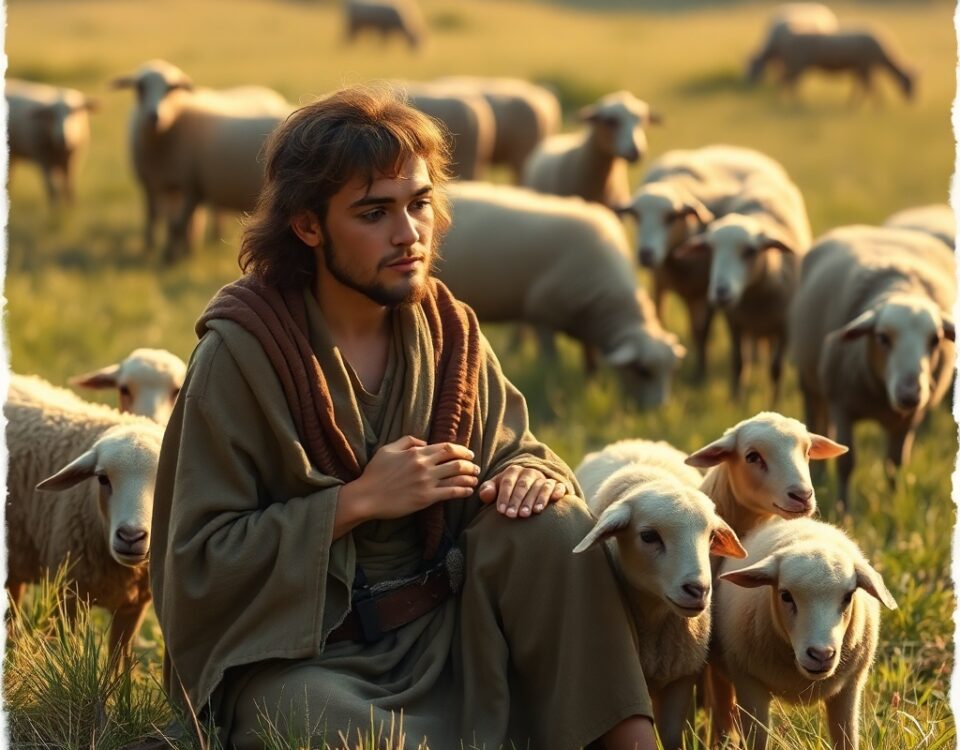Divine Retreat Centre UK – Official Website
“Let God Be Your Bread” – Part 1
May 18, 2023Do You Hate God?
May 18, 2023How did Jesus fulfill the Law and the Prophets? How did Jesus bring everything from the Old Testament—the Passover, the Food from Heaven (Manna), and the Mt. Sinai Covenant—to perfection? And, what does this mean for us as followers of Christ, the New Israel?
Jesus, the Passover Lamb
By becoming man, God Himself in the person of Christ, became the perfect sacrificial Lamb that is offered in the New Passover (the Eucharist). He is without sin (unblemished) and is, therefore, a perfect and acceptable sacrifice to God for the atonement for the sins of the world. “Here is the Lamb of God who takes away the sin of the world!” (John 1:29). Just as the blood of the lamb protected the Hebrews from God’s wrath against the Egyptians, so too does the blood of Christ offered as real drink at the Last Supper and actualized on Mt. Calvary, by the actual shedding of His blood, redeems us from our sins and saves us from God’s condemnation on the last day.
Jesus, the Bread from Heaven
In the form of bread, Jesus comes into the heart of every person who receives Him in Holy Communion. How is He our bread from heaven? The wine and bread we offer at Mass go through a process called “transubstantiation” wherein the power of the word of God is used to make Jesus Christ present in Body, Blood, Soul, and Divinity. Even though the wine and bread does not change physically after the consecration, the substance of these items changes. When the power of the Holy Spirit is invoked: “let your Holy Spirit fall down like a dewfall”, the wine and bread take on a whole new form. There’s a new reality hidden beneath its surface.
It’s no longer just wine and bread. It has become sacred. It has become a person—Jesus Christ. This is in fulfillment of the words He said, “I am the living bread that came down from heaven. Whoever eats of this bread will live forever; and the bread that I will give for the life of the world is my flesh” (John 6:51) … “unless you eat the flesh of the Son of Man and drink his blood, you have no life in you. Those who eat my flesh and drink my blood have eternal life, and I will raise them up on the last day” (John 6:53-54).
Jesus, the New Covenant
In the form of bread, Jesus, in the New Covenant, enters into our hearts. This is in fulfillment of the words of Jesus, “‘They shall all be taught by God.’ Everyone who has heard and learned from the Father comes to me” (John 6:45). Through Christ’s sacrifice at the Last Supper and on the cross, He has sealed the New Covenant by His Blood. By receiving His Body and Blood in the Eucharist, the covenant is now written in our hearts. “You are a letter of Christ, prepared by us, written not with ink but with the Spirit of the living God, not on tablets of stone but on tablets of human hearts” (2 Corinthians 3:3).
When we receive Jesus Christ in the Eucharist, our bodies are transformed into His Body and we become participants of Jesus’ Life.
Also, when we receive the body and blood of Christ, we participate in His divine nature. “Thus, he has given us, through these things, his precious and very great promises, so that through them you may escape from the corruption that is in the world because of lust, and may become participants of the divine nature” (2 Peter 1:4). By accepting Jesus Christ as Lord and Savior by faith, we have become children of God and heirs of the gifts of God’s kingdom. “The one who believes and is baptized will be saved” (Mark 16:16). “These signs will accompany those who believe: by using my name they will cast out demons; they will speak in new tongues; they will pick up snakes in their hands, and if they drink any deadly thing, it will not hurt them; they will lay their hands on the sick, and they will recover” (Mark 16:17-18).
We become participants of Jesus’ Passion
Moreover, by becoming one with Christ, we also participate in His suffering—the suffering that redeems us from sin. “For he has graciously granted you the privilege not only of believing in Christ, but of suffering for him as well” (Philippians 1:29). By joining in Christ’s suffering and uniting our suffering with His, our suffering becomes meaningful and redemptive. That’s why Paul was able to say, “I am now rejoicing in my sufferings for your sake, and in my flesh, I am completing what is lacking in Christ’s afflictions for the sake of his body, that is, the church” (Colossians 1:24).
We become participants of Jesus’ Death
Furthermore, through the Holy Eucharist, we also participate in Christ’ death—the death that paves the way to life. “Do you not know that all of us who have been baptized into Christ Jesus were baptized into his death? Therefore, we have been buried with him by baptism into death, so that, just as Christ was raised from the dead by the glory of the Father, so we too might walk in newness of life” (Romans 6:3-5). What does this mean for us? It means dying to oneself and detaching yourself from the things of this world, while living as a faithful disciple of Christ “For those who want to save their life will lose it, and those who lose their life for my sake, and for the sake of the gospel, will save it” (Mark 8:35).
We become participants of Jesus’ Resurrection
Through the Holy Eucharist, we participate in the blessings of His glorious resurrection. By receiving Christ in Holy Communion, we are filled with His grace which helps us to be able to live the divine life. “One does not live by bread alone but by every word that comes from the mouth of God” (Matthew 4:4). And, we also receive a foretaste of the glory that is to be ours. Jesus said, “for I have come down from heaven, not to do my own will, but the will of him who sent me. And this is the will of him who sent me, that I should lose nothing of all that he has given me, but raise it up on the last day. This is indeed the will of my Father, that all who see the Son and believe in him may have eternal life; and I will raise them up on the last day” (John 6:38-40).
Conclusion
As we continue on our earthy pilgrimage, it’s important to set our eyes on the bread that is eternal, rather than the bread or earthly food which is passing away. We should therefore be careful not to make this earthy bread into an idol. Jesus said that He is the bread that has come down from heaven and anyone who eats this bread will live forever. This is unlike the earthly bread, where we eat and still die. Jesus has given us His body and blood to nourish and strengthen us as a pilgrim church and this is just a foretaste of what’s to come. We must fully accept this and live a life centered on the Eucharist, where the truth about the infinite love of God becomes very real in our hearts.



